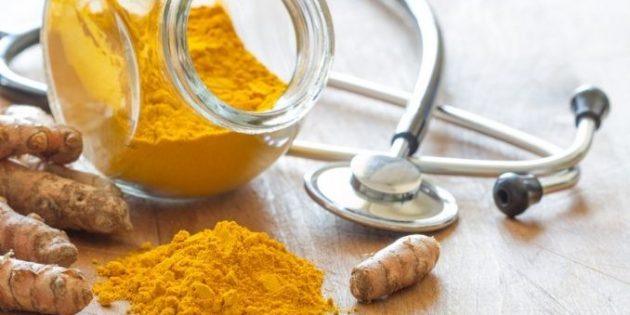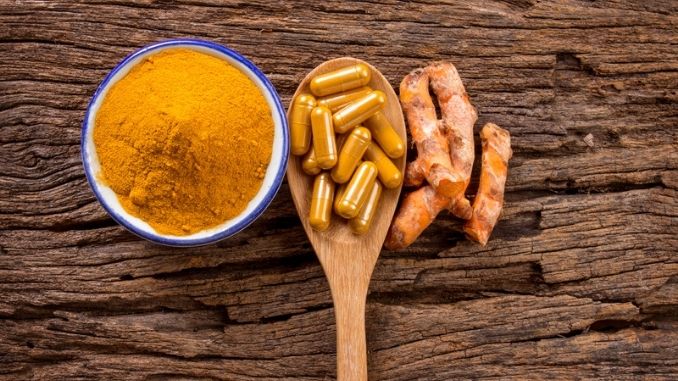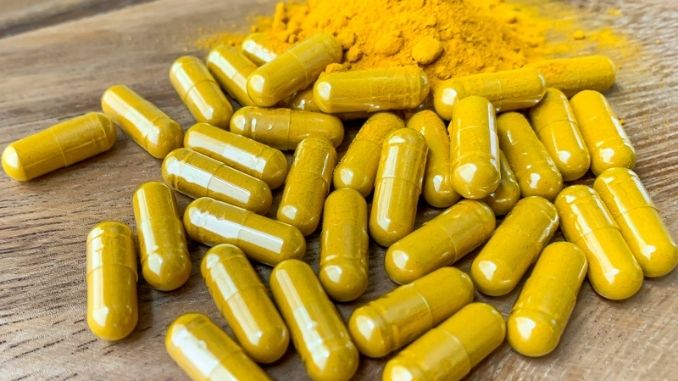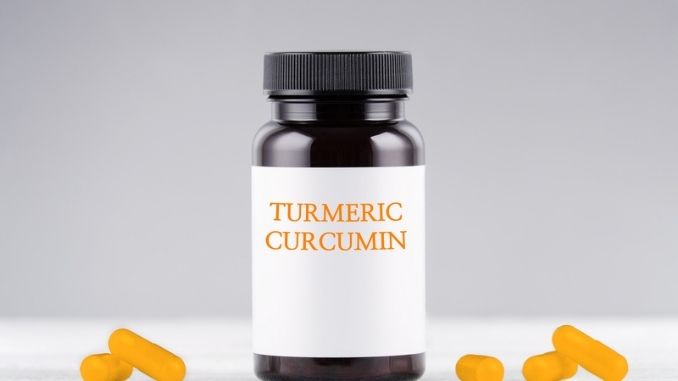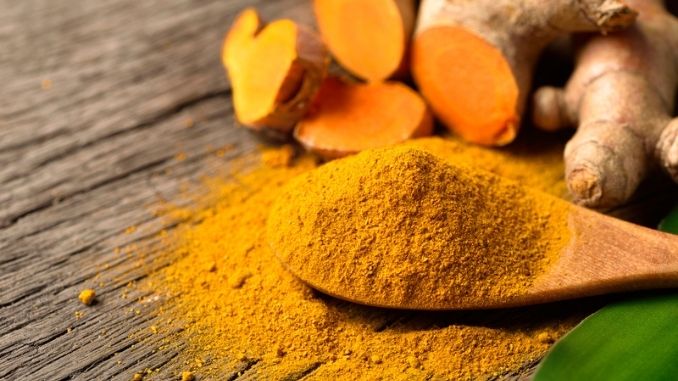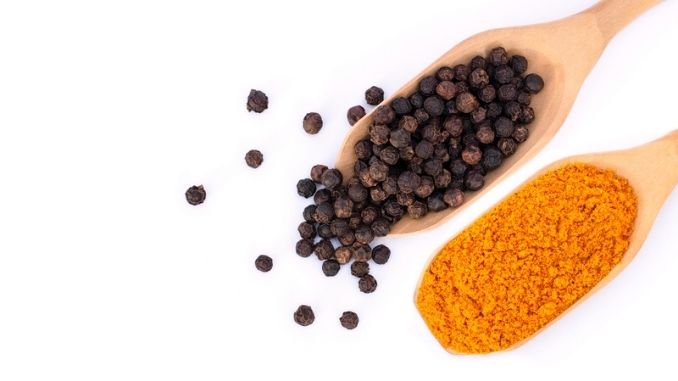Turmeric contains Curcumin, a yellow-colored chemical that is commonly used as a food coloring and in cosmetics. Often Turmeric is used in Asian foods and is the primary spice in curry dishes. Turmeric is a spice from a plant in the ginger family and is often used to flavor or color curry powders, mustards, butter, and cheese. Turmeric is known to have a warm and bitter taste as a spice. However, it has recently been promoted as a dietary health supplement. Naturopathic doctors, herbalists, and alternative healthcare practitioners have long praised Turmeric for its effectiveness.
One recent study stated, “Modern medicine has begun to recognize its importance, as indicated by the over 3000 publications dealing with Turmeric that came out within the last 25 years. This review first discusses in vitro studies with Turmeric, followed by animal studies, and finally, studies carried out on humans; the safety and efficacy of Turmeric are further addressed.”
Curcumin, the primary component of Turmeric, and the effects of Turmeric are often attributed to curcuminoids (Curcumin and closely related substances). The yellow color is from Curcumin. On the other hand, Curcuminoids are said to be the active compounds found in Turmeric. While Curcumin is considered the primary curcuminoid in Turmeric, Turmeric dietary supplements are primarily made from the dried rhizome. Which also typically contains a mixture of curcuminoids. Aside from taking Turmeric orally, it is also made into a paste for treating certain skin conditions.
Health Benefits of Turmeric
Research suggests that Curcumin can help in the management of many inflammatory conditions. It may also help manage muscle soreness and inflammation secondary to exercise, thus allowing shorter recovery and increased performance in inactive people. Turmeric also aids in situations such as arthritis, allergies, anxiety, digestive disorders, respiratory infections, liver disease, and many others.
Arthritis
The active chemical in Turmeric, known as Curcumin, is said to block certain enzymes and cytokines that lead to inflammation.
Anxiety and Depression
People taking antidepressants have shown reduced symptoms when taking Curcumin found in Turmeric.
Allergies
Curcumin possesses antioxidant and anti-inflammatory properties that can help with hypersensitivity reactions.
Burns, Skin Infection, and Abrasions
Turmeric’s anti-inflammatory and antimicrobial properties make it an excellent option for various skin conditions.
Digestive Disorders
Turmeric is an alternative therapy for heartburn, inflammation, and stomach ulcers.
Hay Fever
Curcumin reduces hay fever symptoms such as sneezing, itching, runny nose, and congestion.
High Cholesterol
Studies on individuals with metabolic syndrome have shown that taking Curcumin (found in Turmeric) for 2-3 months can decrease low-density lipoprotein cholesterol (LDL), or a type of “bad” cholesterol.
Itching
Taking Turmeric by mouth thrice daily for eight weeks reduced itching in people with long-term kidney disease.
Liver Conditions
In those with liver disease not caused by alcohol, there was a reduction in the markers of liver injury. It helped prevent the build-up of more fat in the liver in people with this condition.
Respiratory Infections
Curcumin attenuates lung injury and fibrosis caused by radiation, chemotherapeutic drugs, and toxicants. The growing amount of data from pharmacological and animal studies also support the notion that Curcumin plays a protective role in chronic obstructive pulmonary disease, acute lung injury, acute respiratory distress syndrome, and allergic asthma, its therapeutic action being on the prevention or modulation of inflammation and oxidative stress. These findings give substance to the possibility of testing curcumin in patients with lung diseases.
All of these claims have been backed up with medical research and studies.
Turmeric as a Supplement
Turmeric has long been recognized for its uniqueness and medicinal properties. Curcumin has been credited for a wide variety of turmeric benefits. Curcumin is the key active ingredient in Turmeric. As mentioned above, Turmeric has many health benefits, so you might want to consider taking Turmeric as a dietary supplement. It would help if you always talked to your doctor before taking any supplements, as they can potentially interact with other medications.
Precautions and Interactions
Anticoagulant/ Antiplatelet Drugs. Taking Turmeric may slow down blood clotting. With that being said, you should be cautious taking Turmeric if you are already taking medications such as aspirin, clopidogrel (Plavix), diclofenac (Voltaren, Cataflam, others), ibuprofen (Advil, Motrin, others), naproxen (Anaprox, Naprosyn, others), dalteparin (Fragmin), enoxaparin (Lovenox), heparin, warfarin (Coumadin), and others. These medications slow down blood clotting, and when taken with Turmeric, it can increase the likelihood of bruising and bleeding.
Gallstones/ Gallbladder Problems: Turmeric may increase bile secretion; thus, it is not recommended for those with gallstones, bile duct obstruction, and cholangitis.
Iron Deficiency: As stated in a case report, Turmeric was associated with significant iron deficiency anemia, consistent with the binding of available iron in the gut and the prevention of absorption. With this, take caution in taking Turmeric if you have an iron deficiency.
Surgery: Turmeric might slow blood clotting and cause extra bleeding during and after surgery. Stop using Turmeric at least two weeks before a scheduled surgery.
Foods with Curcumin
Turmeric: The natural source of Curcumin.
Curry Powder: Curry powder blends use Turmeric, which makes curry powder a good source of Curcumin. You can always make homemade curry powder and include an extra dose of Turmeric for added health benefits.
Mango Ginger: Also known as Curcuma Amada.
Also, Note:
Turmeric products are available commercially in capsules, teas, powders, and extracts. It is essential to take caution when deciding whether or not Turmeric will benefit you personally. As with any alternative therapy, consult your doctor before using Turmeric to treat any health condition.
Many companies have gone to great lengths to develop curcumin products by increasing their bioavailability. According to MSD Manual, Bioavailability refers to the extent and rate at which the active moiety (drug or metabolite) enters systemic circulation, thereby accessing the site of action. The bioavailability of a drug is primarily determined by the properties of the dosage form, which depends partly on its design and manufacture.
Unfortunately, Turmeric Curcumin is poorly absorbed into the bloodstream. This means that you may be unable to maximize the health benefits Curcumin can provide quickly. However, adding black pepper can help. Research supports that combining the piperine in black pepper with the Curcumin in Turmeric enhances curcumin absorption by up to 2,000%. Piperine is an alkaloid that has been shown to improve the bioavailability of Curcumin. Not only that, but it also helps fight inflammation and reduce pain. Thus, combining Curcumin and piperine, they become a powerful inflammation-fighting team.
There is currently no information on whether Turmeric can be safely consumed in amounts higher than those found in food. Make sure to consult your doctor or health care providers to decide whether Turmeric is suitable for you. Do note; Turmeric may be unsafe for use during pregnancy or while breastfeeding.
Are you looking for the ultimate guide for healthy, anti-inflammatory nutrition? Click here to learn more.
